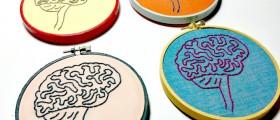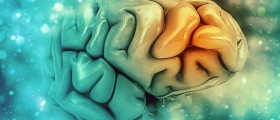
What is Alzheimer's disease?
Alzheimer's disease is an irreversible and progressive braindisease. It affects the person's ability to think clearly and logically anddestroys the said person's memory and memorizing abilities, eventually leadingto, among various other complications, trouble with or inability to performeven very simple tasks. This disease is more common in women than in men, forstill unknown reasons, but it is believed that it might be because women ingeneral live longer than men. Majority of population diagnosed with Alzheimer'sdisease are over 65 years of age.
Alzheimer's disease is the typical cause of dementia inelderly persons. It gradually destroys their cognitive ability and makes itmore and more difficult for them to think, remember, and reason.
Symptoms
Alzheimer's disease damages the synapses, that is,communication points between brain cells, and thus damages cognition (in plainlanguage, memory and thinking). As their synapses fail, brain cells begin todie off. This interference that damages synapses is supposedly caused byabnormal fibers, which look like clumps and knitted mass. Reason for appearanceof such tangled fibers is still unknown and significant efforts are spent todiscover the source of this condition. There are three stages of Alzheimer'sdisease, mild, moderate and severe.
In the early stage, the disease is manifested throughchanges in mood and minor loss of memory. Some difficulty in performing ofroutine, everyday tasks might be experienced. Also, affected persons may becomelost, repeat questions that were answered minutes before, become confusedeasily, and the like. In moderate stage, which is the longest (may last fromtwo to ten years) persons suffer from loss of both short and long term memory,and are frequently disoriented and detached from reality, frequently havetrouble to recognize even family members, and fail to perform complex tasks.Severe stage of Alzheimer's disease is the harshest, as affected persons losevirtually all of their memory, and are unable to take care for themselves,including the ability to speak, feed themselves, or control bodily functions.
Diagnosis and treatment
Diagnosis is made by assessment of the patient's overallhealth, discussion on changes in behavior, estimation of ability to managesimple tasks and overview of the person's medical history. This includes testswhich will determine the person’s ability to solve problems and to memorize,count and focus. Some medical tests will be run to search for other possiblecauses of the experienced symptoms. CT or MRI brain scans are also performed.
There is (still) no cure for Alzheimer's disease but it ispossible to slow its progress in some people and for a limited amount of time,typically up to a year. Prevention of Alzheimer's disease including constantstimulation of one's mind and maintaining a healthy circulatory system as brainis strong need of a good blood and nutrient supply.

















Your thoughts on this
Loading...